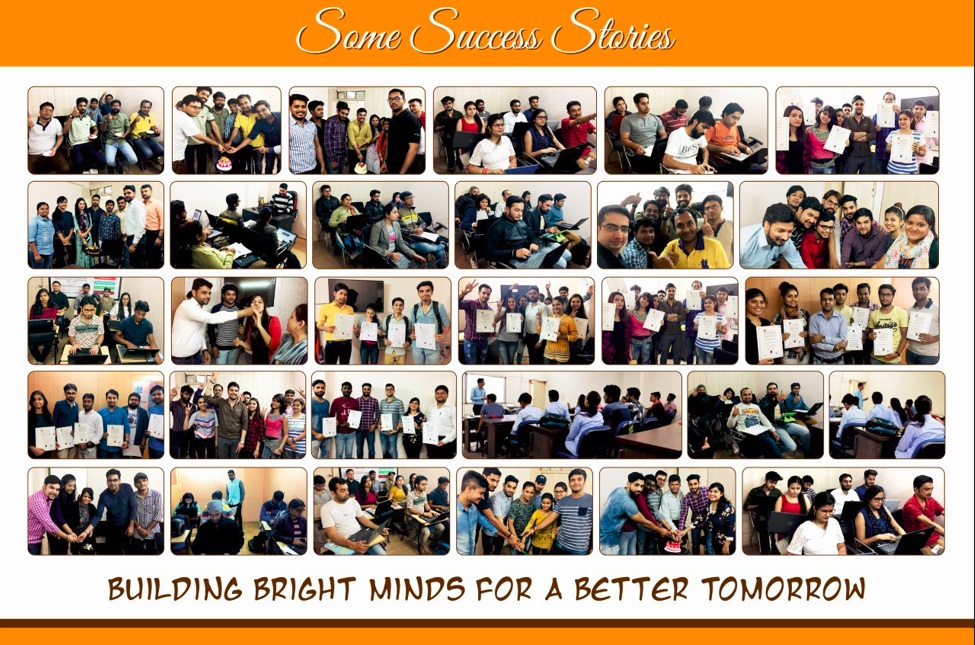IIFRA – Stock Market Course Institute in Delhi

Top 20 Stock Market Course in Delhi Questions and Answers:
- What is the stock market?
- Answer: The stock market is a platform where buying, selling, and issuing of shares of publicly-held companies occur. It provides a mechanism for companies to raise capital and investors to buy and sell shares, enabling ownership in those companies.
- What are the key components of the stock market?
- Answer: The key components include stock exchanges (e.g., BSE, NSE), stock brokers, investors (both retail and institutional), listed companies, regulators (e.g., SEBI), and clearing corporations.
- What is the difference between primary and secondary markets?
- Answer: The primary market is where new securities are issued and sold for the first time by companies to raise capital, while the secondary market is where existing securities are bought and sold among investors, without the involvement of the issuing company.
- What factors influence stock prices?
- Answer: Stock prices are influenced by factors such as company performance, economic indicators, market sentiment, geopolitical events, industry trends, and regulatory changes.
- What is technical analysis?
- Answer: Technical analysis is a method of evaluating securities by analyzing statistical trends gathered from trading activity, such as price movements and trading volume, using charts and technical indicators.
- What is fundamental analysis?
- Answer: Fundamental analysis is a method of evaluating securities by examining the financial statements, earnings, revenues, assets, liabilities, and other qualitative and quantitative factors to determine their intrinsic value.
- What are the different types of orders in stock trading?
- Answer: The different types of orders include market orders, limit orders, stop orders, stop-limit orders, and trailing stop orders, each specifying different conditions for executing trades.
- What are stock market indices?
- Answer: Stock market indices are measures that track the performance of a group of stocks representing a particular market, sector, or asset class. Examples include the Nifty 50, Sensex, and Dow Jones Industrial Average.
- What is a bull market?
- Answer: A bull market is a financial market characterized by rising stock prices and optimistic investor sentiment, typically driven by strong economic fundamentals and increasing investor confidence.
- What is a bear market?
- Answer: A bear market is a financial market characterized by falling stock prices and pessimistic investor sentiment, often accompanied by economic downturns, recession fears, and declining corporate profits.
- What are blue-chip stocks?
- Answer: Blue-chip stocks are shares of large, well-established companies with a history of stable earnings, strong balance sheets, and a reputation for reliability, typically included in major stock market indices.
- What is diversification in stock market investing?
- Answer: Diversification is a risk management strategy that involves spreading investments across various asset classes, sectors, and geographic regions to reduce the overall risk of a portfolio.
- What are the major risks associated with stock market investing?
- Answer: The major risks include market risk, company-specific risk, systematic risk, liquidity risk, currency risk, interest rate risk, political risk, and regulatory risk.
- What is the role of technical indicators in stock market analysis?
- Answer: Technical indicators are mathematical calculations based on price, volume, or open interest data used by traders and analysts to forecast future price movements, identify trends, and generate trading signals.
- What is the significance of volume in stock trading?
- Answer: Volume represents the number of shares traded in a security over a given period. High trading volume indicates strong investor interest and liquidity, while low volume may suggest lackluster interest or indecision among market participants.
- What are the benefits of investing in mutual funds?
- Answer: Mutual funds offer diversification, professional management, liquidity, convenience, and access to a wide range of asset classes and investment strategies, making them suitable for both novice and experienced investors.
- What are the different types of mutual funds available in the market?
- Answer: The different types include equity funds, debt funds, hybrid funds, index funds, sector funds, thematic funds, and exchange-traded funds (ETFs), each catering to different investment objectives and risk profiles.
- How do you assess the risk-return profile of a stock?
- Answer: The risk-return profile is assessed by analyzing factors such as historical price volatility, beta (systematic risk), earnings growth potential, dividend yield, debt levels, competitive positioning, and macroeconomic factors impacting the industry.
- What are the tax implications of stock market investments?
- Answer: Tax implications include capital gains tax on profits from selling stocks, dividend distribution tax on dividend income received from stocks, securities transaction tax (STT) on trades executed on stock exchanges, and long-term and short-term capital gains tax rates.
- What are the key considerations when building an investment portfolio?
- Answer: Key considerations include setting investment goals, assessing risk tolerance, diversifying across asset classes, sectors, and geographic regions, aligning investments with time horizon and liquidity needs, and periodically reviewing and rebalancing the portfolio.
Also see Top Stock Market Courses in Delhi NCR:
- Stock Market Courses in India With Fees & Duration
- Stock Market Courses in Noida With Fees & Duration
- Stock Market Courses in Ghaziabad With Fees & Duration
- Stock Market Courses in Greater Noida With Fees & Duration
- Stock Market Courses in Faridabad With Fees & Duration
- Stock Market Courses in Gurgaon With Fees & Duration
2. Certificate Course in Equity Research and Analysis in Delhi:
- Duration: 3 months
- Location: Delhi
- Curriculum: Focuses on equity research methodologies, financial statement analysis, valuation techniques, industry analysis, and equity market trends.
- Key Features: Case studies, real-world projects, access to research tools, and internship opportunities.
3. Advanced Technical Analysis Program in Delhi:
- Duration: 2 months
- Location: Delhi
- Curriculum: Advanced technical analysis tools and indicators, chart patterns, trend analysis, momentum trading strategies, and algorithmic trading.
- Key Features: Hands-on training with trading software, backtesting techniques, simulated trading sessions, and personalized guidance from industry professionals.
4. Derivatives Market Certification Course in Delhi:
- Duration: 3 months
- Location: Delhi
- Curriculum: Covers futures, options, swaps, hedging strategies, risk management techniques, and trading in derivative products.
- Key Features: Practical exposure through live trading simulations, understanding market dynamics, and preparing for NISM certification.
5. Algorithmic Trading and Quantitative Analysis Program in Delhi:
- Duration: 4 months
- Location: Delhi
- Curriculum: Focuses on quantitative trading strategies, algorithm development, coding in Python/R, backtesting, and optimizing trading algorithms.
- Key Features: Hands-on coding workshops, access to high-frequency trading platforms, mentorship by quants, and internship opportunities with algorithmic trading firms.
6. Certified Financial Market Professional (CFMP) Program in Delhi:
- Duration: 6 months
- Location: Delhi
- Curriculum: Comprehensive training in equity, derivatives, commodities, currency markets, financial modeling, risk management, and investment banking.
- Key Features: Industry-recognized certification, practical case studies, workshops on trading platforms, and placement support.
7. Fundamental Analysis and Valuation Program in Delhi:
- Duration: 3 months
- Location: Delhi
- Curriculum: In-depth analysis of financial statements, valuation methodologies (DCF, PE ratio, etc.), industry and company research, and investment decision-making.
- Key Features: Guest lectures by corporate analysts, sector-wise analysis, financial modeling projects, and internship opportunities with brokerage firms.
8. Options Trading Strategies Workshop in Delhi:
- Duration: 1 month
- Location: Delhi
- Curriculum: Focuses on advanced options trading strategies, including straddles, strangles, spreads, butterfly, iron condors, and volatility trading.
- Key Features: Live trading demonstrations, risk management techniques, understanding option Greeks, and building customized trading strategies.
9. Portfolio Management and Wealth Advisory Program in Delhi:
- Duration: 4 months
- Location: Delhi
- Curriculum: Asset allocation strategies, portfolio construction techniques, performance evaluation, wealth preservation, and estate planning.
- Key Features: Practical exercises on portfolio optimization, client advisory role-plays, seminars on wealth management trends, and mentorship by seasoned wealth managers.
10. Technical Analysis Masterclass in Delhi:
Duration: 1 month – Location: Delhi, Curriculum: Advanced technical analysis tools, Elliott Wave theory, Fibonacci retracements, Gann analysis, candlestick patterns, and trading psychology. – Key Features: Live market analysis sessions, building trading systems, risk mitigation strategies, and continuous support through online forums.
11. Commodity Market Fundamentals Course in Delhi:
Duration: 2 months – Location: Delhi, Curriculum: Understanding commodity markets, trading in agricultural, energy, and metal commodities, futures and options trading, and risk management. – Key Features: Field visits to commodity exchanges, interaction with commodity traders, analyzing global commodity trends, and hands-on trading simulations.
12. Forex Trading Workshop in Delhi:
Duration: 1 month – Location: Delhi, Curriculum: Introduction to forex markets, currency pairs and their correlations, technical analysis in forex trading, leverage and margin trading, and risk management. – Key Features: Live trading sessions in currency pairs, understanding central bank policies, macroeconomic indicators, and building a forex trading strategy.
13. Wealth Creation Strategies Seminar in Delhi:
Duration: 1 week – Location: Delhi, Curriculum: Wealth creation mindset, long-term investment strategies, tax planning, retirement planning, estate planning, and creating multiple income streams. – Key Features: Interactive sessions with successful investors, case studies on wealth creation principles, goal setting exercises, and personalized financial planning consultations.
14. Corporate Finance and Investment Banking Course in Delhi:
Duration: 3 months – Location: Delhi, Curriculum: Investment banking fundamentals, capital raising methods, mergers and acquisitions, IPO process, due diligence, and financial modeling for investment decisions. – Key Features: Workshops on deal structuring, valuation techniques, pitch book preparation, and internship opportunities with investment banks and corporate finance firms.
15. Financial Risk Management Program in Delhi:
Duration: 2 months – Location: Delhi, Curriculum: Understanding financial risk, market risk, credit risk, operational risk, risk measurement methodologies, risk mitigation strategies, and regulatory compliance. – Key Features: Case studies on risk management failures, stress testing simulations, implementing risk management frameworks, and preparing for FRM certification.
16. Behavioral Finance Workshop in Delhi:
Duration: 1 week – Location: Delhi, Curriculum: Understanding investor behavior, cognitive biases in decision making, emotions and trading psychology, herd mentality, and behavioral finance strategies. – Key Features: Psychological profiling exercises, trading journal analysis, risk tolerance assessments, and developing disciplined trading habits.
17. Real Estate Investment Analysis Course in Delhi:
Duration: 2 months – Location: Delhi, Curriculum: Introduction to real estate markets, property valuation methods, rental yield calculations, cash flow analysis, financing options, and real estate investment strategies. – Key Features: Field visits to real estate projects, analyzing property market trends, understanding legal and regulatory aspects, and networking with real estate developers.
18. Ethical Investment Practices Seminar in Delhi:
Duration: 1 week – Location: Delhi, Curriculum: Ethics in finance, responsible investing principles, ESG (Environmental, Social, Governance) factors in investment decisions, and ethical investment strategies. – Key Features: Case studies on ethical dilemmas, discussions on corporate governance issues, screening ethical investments, and incorporating sustainability in portfolios.
19. Financial Planning and Retirement Readiness Program in Delhi:
Duration: 3 months – Location: Delhi, Curriculum: Financial goal setting, budgeting, investment planning, insurance planning, tax planning, retirement planning, and estate planning. – Key Features: Personal financial planning consultations, retirement calculators, risk tolerance assessments, and building a customized financial plan.
20. Investment Psychology Workshop in Delhi:
Duration: 1 week – Location: Delhi, Curriculum: Understanding market emotions, fear and greed cycles, cognitive biases in trading, emotional discipline, mindfulness techniques, and maintaining a trading journal. – Key Features: Group discussions on trading psychology, stress management techniques, visualization exercises, and developing a positive mindset for trading success.
Conclusion:
The Indian Institute of Financial Research and Analysis (IIFRA) stands as a premier institution in Delhi, offering a diverse range of stock market courses designed to equip individuals with the knowledge and skills required to thrive in the dynamic world of finance. Whether it’s mastering technical analysis, understanding derivatives markets, or honing investment strategies, IIFRA’s courses cater to the diverse needs of aspiring traders, investors, and finance professionals. Through a blend of theoretical knowledge, practical training, and industry exposure, IIFRA continues to shape the future leaders of the financial industry, empowering them to make informed decisions and achieve financial success.


